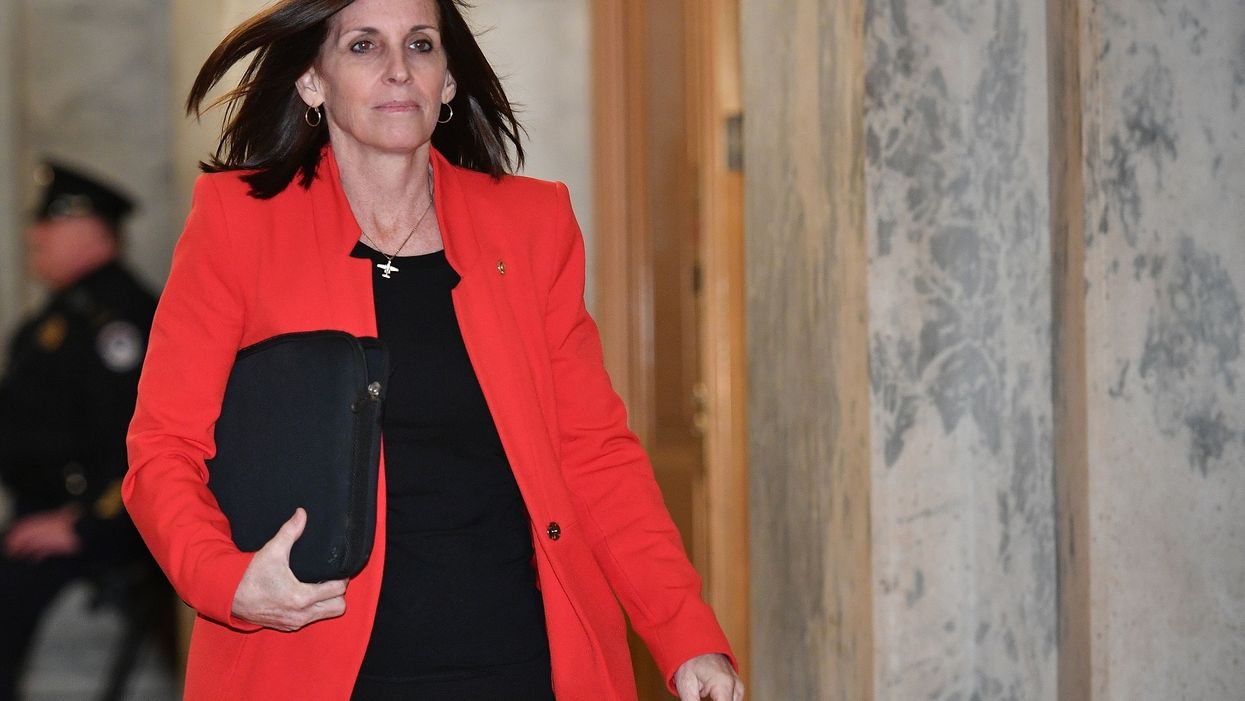
Sen. Martha McSally (R-Ariz.)/( MANDEL NGAN/AFP via Getty Images)

'If Americans aren't getting paid, then neither should we'
Arizona Republican Sen. Martha McSally has formally introduced legislation that would withhold the pay of U.S. senators until the upper chamber's passage of a coronavirus relief package.
"If Americans aren't getting paid, then neither should we," McSally tweeted Tuesday. "I introduced today a bill to withhold Senate pay until we pass the COVID-19 relief package."
The Senate has been arguing over the third phase of a coronavirus package for days while an increasing number of Americans are losing their jobs as businesses shut down due to social distancing measures aimed at stopping the pandemic.
Several Republicans have expressed outrage from the Senate floor after Democrats blocked what was believed to be a pre-negotiated bipartisan bill on Sunday night and again on Monday.
As of Tuesday afternoon, the Senate still had no deal approved, leading McSally to introduce her legislation, as she had threatened the day before.
At least one of McSally's colleagues hinted that he would support such a measure. Tuesday evening, Sen. Lindsey Graham (R-S.C.) told Fox News, "Here is what I say: If we don't have a bill in the next 48 hours, every member and every staff person up here should lose their pay and their benefits until we pass a bill."
The problem is that a bill cutting the pay of members of Congress is unconstitutional.
The Washington Examiner noted:
The 27th Amendment, ratified in 1992, prohibits members of Congress from changing their own pay during a current session of Congress. The amendment is aimed at preventing lawmakers from giving themselves pay raises in the middle of the night or retroactively at the end of the congressional sessions. But it also means they can't cut their own pay either, not until after the next general election is held in November.